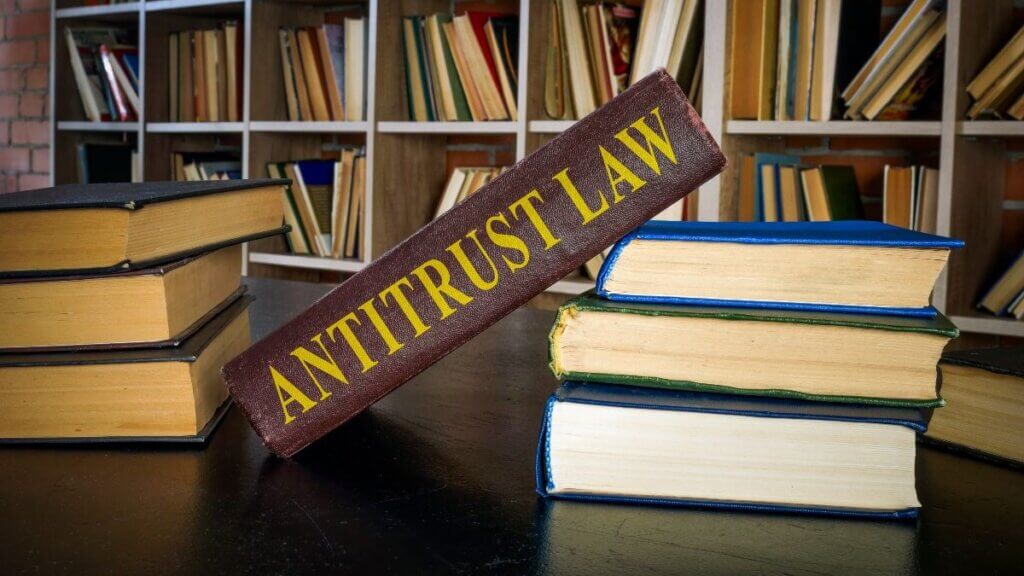Subscribe to receive featured episodes and staff favorites once a month.
Newsletter Signup
The role of antitrust regulations is expanding with the implementation of new regulatory frameworks worldwide. This expansion means that businesses operating across the globe are now encountering a more intricate set of rules that they must adhere to. This year has been particularly significant for global antitrust, and businesses have had to forecast and actively maneuver through the evolving enforcement landscape to maintain a competitive edge. In the blog post below, we will review some of the more recent antitrust cases and analyze their impact on both businesses and consumers.
In May 2024, the United States Department of Justice (DOJ), in collaboration with 30 state and district attorneys general, took legal action by filing a civil antitrust lawsuit against Live Nation Entertainment Inc. and its wholly-owned subsidiary, Ticketmaster LLC (Live Nation-Ticketmaster). The lawsuit alleges that Live Nation-Ticketmaster has engaged in monopolistic practices and other illegal conduct that hinder competition in various sectors of the live entertainment industry. This legal action, which includes a request for structural relief, aims to reinstate fair competition within the live concert industry, enhance affordable options for fans, and create opportunities for musicians and other artists to access venues.
As of August 2024, The Attorneys General of Indiana, Kansas, Iowa, Mississippi, Louisiana, New Mexico, Nebraska, South Dakota, Vermont, and Utah have joined the civil antitrust lawsuit. The DOJ has also filed an amended complaint that alleges further details about Live Nation-Ticketmaster’s anticompetitive course of conduct in markets across the live entertainment industry.
Lee Hepner, a California-based antitrust lawyer and Senior Legal Counsel for the American Economic Liberties Project, explains how Ticketmaster’s practices impacted Taylor Swift’s Eras Tour and the potential impact this could have on the ticket sales giant and future ticket sales on Lawyer 2 Lawyer:
Lawyer 2 Lawyer

On January 24, 2023, the United States Department of Justice initiated an ongoing federal antitrust case against Google LLC, commonly referred to as United States v. Google LLC. The lawsuit alleged that Google has engaged in illegal monopolistic practices in the advertising technology (ad tech) market, violating the Sherman Antitrust Act of 1890. The case focuses on Google’s alleged anticompetitive behavior and its impact on the ad tech industry.
In August 2024, a federal court largely ruled in favor of the Department of Justice and most states in their antitrust lawsuit against Google. The court determined that Google holds a monopoly in the markets for general search services and text ads. This was found to be due to Google enhancing its power through exclusive distribution agreements that established Google as the default search engine, which in turn led to increased ad prices. Despite the ruling, Google has already announced plans to appeal and could potentially present solid arguments for a reversal. Notably, Google may challenge the Justice Department’s narrow market definitions and its failure to provide evidence to support those definitions.
In August 2024, the Justice Department, in collaboration with the Attorneys General of Oregon, Tennessee, North Carolina, Connecticut, Minnesota, California, Colorado, and Washington, took legal action by filing a civil antitrust lawsuit against RealPage Inc.
The lawsuit alleges that RealPage Inc. was involved in an illegal operation to reduce competition among landlords in apartment pricing and attempt to establish a monopoly in the market for commercial revenue management software, which landlords use to set apartment prices. The alleged actions by RealPage Inc. are claimed to have adverse effects on renters, depriving them of the advantages of a competitive market for apartment leasing terms and impacting millions of Americans.
Assistant Attorney General Jonathan Kanter of the Antitrust Division at the Department of Justice has stated that the purpose of the lawsuit is to enhance housing affordability for millions of people nationwide. Additionally, the lawsuit serves as a reminder to companies about the DOJ’s heightened scrutiny of the growing use of algorithms and artificial intelligence in various sectors of the economy. Deputy Attorney General Lisa Monaco emphasized that “training a machine to break the law is still breaking the law. Today’s action makes clear that we will use all our legal tools to ensure accountability for technology-fueled anticompetitive conduct.”
To learn more about breaking legal decisions and their impacts, subscribe to Legal Talk Network on Apple Podcasts or Spotify.
Legal Talk Network is a podcast network for legal professionals with hosts from well-known organizations and brands in legal. Over 20 active podcasts cover important legal news and developments, including access to justice, law school, industry events, legal technology, and the future of law.